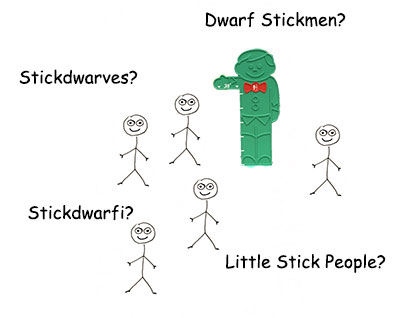
It’s conventional wisdom among linguists that English is among the most difficult languages for non-natives to learn. When it comes to the finer points of spelling and usage, though, it’s no picnic for native speakers either. Words may sound similar but have different meanings, either radically so or in more nuanced shades of meaning. Words derived from the same root might change their spellings when used as nouns or verbs, or when going from singular and plural, and adding to the confusion, some of these irregular spellings follow predictable patterns, while other stay, well, irregular.
Over the next few months, we’ll be looking at sets of commonly confused words, those oddities of English that so often trip up even educated writers. Wherever possible, we’ll explore strategies for telling them apart, but in many cases, the only way to keep them straight will be memorization, using these blogs as reference.
Get a free sample proofread and edit for your English document.
Two professional proofreaders will proofread and edit your English document.
Let’s begin by delving into some of those irregular endings and how they change or don’t as nouns become verbs.
Make Like a Tree and Leave
One convention that both native English-speaking children and adult learners of English as a foreign language find difficult to master is the way that some singular nouns ending with an -f sound adopt the -ves ending in the plural. Examples include “knife/knives,” “wolf/wolves,” and “leaf/leaves.”
But language is dynamic, and some words that once followed this convention no longer do so, or do so only for certain specialized meanings. In the distant past, for instance, the word “staff” referred most commonly to a walking stick or war club, and was always pluralized as “staves” (pronounced with a long A, to rhyme with “graves”). That meaning is now rare: in contemporary English, “staff” (when used as a noun) nearly always refers to the collective personnel who work in an office or school, or (when used as a verb) to the act of hiring or assembling such a body of workers. As a noun in this context, it is pluralized with a simple -s ending, as in “Graduates of our business program serve on the staffs of many large corporations.”
The word “staff” also has a specialized meaning as a system of lines in sheet music; in this context, the plural is “staves.”
A Short Digression
While “staff” has mostly lost its -ves plural, other plurals have adopted the convention. Consider the curious case of “dwarves.” When the word “dwarf” reentered English around 1770, its plural was “dwarfs,” and remained so well into the twentieth century: the 1938 Walt Disney cartoon, for instance, is entitled Snow White and the Seven Dwarfs. But since the middle of the last century, the -ves ending has become standard when referring to these imaginary creatures. The change is attributable to one man: J.R.R. Tolkien, author of The Hobbit and The Lord of the Rings, who coined the plural “dwarves” as a parallel to “elves.” Tolkien, who was a linguist as well as an author, reasoned that both words were ultimately of Germanic origin, and thus regularized their endings.
Note that the plural “dwarves” only applies to the mythological beings of European folklore or similar literary sources. When speaking of real people of short stature resulting from a genetic or medical condition, or of certain astronomical phenomena (e.g., a white dwarf star), the correct plural is “dwarfs.”

All At Sea
Another change along these lines is currently ongoing. The word “wharf,” meaning a quay or harborside structure from which ships are loaded and unloaded, dates back to Old English. The standard plural has historically been “wharfs,” with “wharves” as an uncommon variant. Over the last century, though, “wharves” has become more common, particularly in American English. The Merriam-Webster Dictionary now lists “wharves” first, with “wharfs” as the variant, while dictionaries from other English-speaking countries do the opposite. It’s anybody’s guess whether the -ves version will gain worldwide supremacy; it’s equally likely that the pendulum will swing back to -fs for American usage. Or perhaps most likely of all, US and world English will simply continue to diverge over time, until they are mutually unintelligible.
Verbing Weirds Language
In all of these complexities and exceptions, one thing remains straightforward: when turning any of these nouns into a verb, retain the -f ending, with a simple -fs for the third-person singular present tense.
Jack F.
Get a free sample proofread and edit for your English document.
Two professional proofreaders will proofread and edit your English document.
Get a free sample proofread and edit for your document.
Two professional proofreaders will proofread and edit your document.
We will get your free sample back in three to six hours!